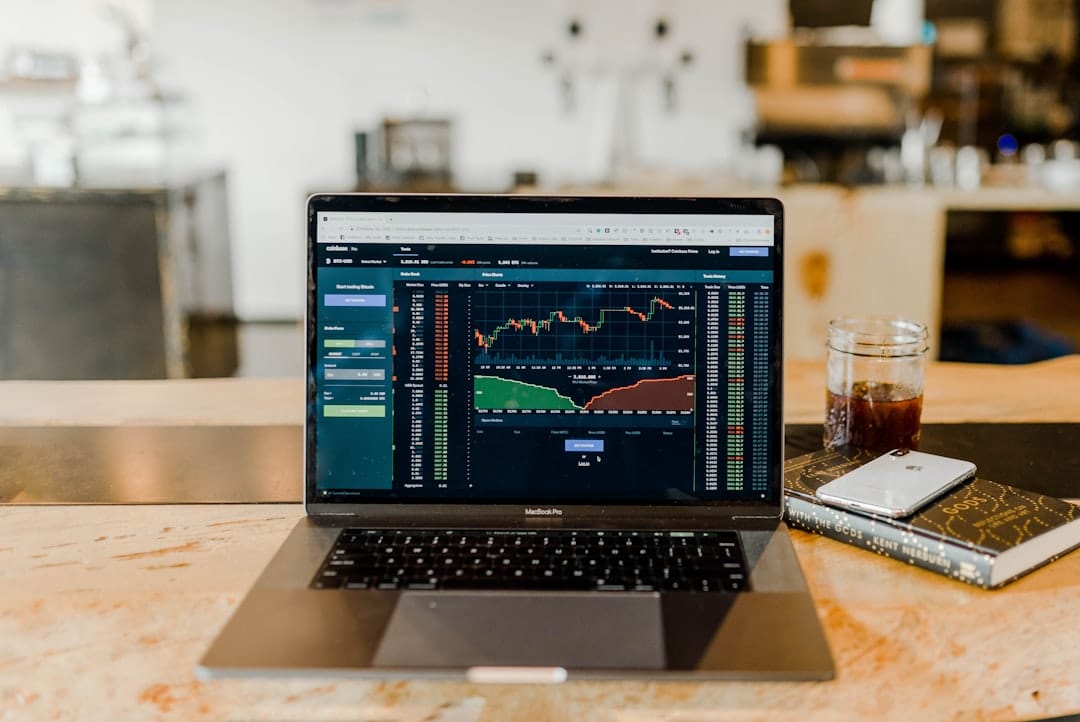Trading in the foreign exchange market, also known as forex trading, can be both exhilarating and daunting. Navigating the complexities of forex trading requires a solid strategy, keen market insight, and the ability to make informed decisions. One valuable tool that can aid traders in their journey towards success is forex signals. These signals serve as a guiding light, providing crucial information on market trends, entry and exit points, and potential trading opportunities. In this comprehensive guide, we will delve into the world of forex signals, exploring how they work, their benefits, and how you can leverage them to craft a winning trading blueprint.
Understanding Forex Signals: Unveiling the Power of Market Insights

Forex signals are essentially trading suggestions or recommendations generated by professional traders or automated systems. These signals are based on thorough market analysis, technical indicators, and economic news that impact currency values. By subscribing to a reliable forex signal service, traders gain access to real-time information that can influence their trading decisions. These signals often come with specific details such as currency pairs to trade, entry and exit points, stop-loss levels, and potential profit targets. Understanding how to interpret and act upon these signals is crucial for traders looking to maximize their trading potential.
Forex signals can be classified into two main categories: manual signals and automated signals. Manual signals are generated by experienced traders who analyze the market themselves and send out trading recommendations based on their expertise. On the other hand, automated signals are generated by algorithmic trading systems that use predefined criteria to identify trading opportunities. Both types of signals have their pros and cons, and choosing the right one depends on your trading style, risk tolerance, and level of expertise.
Benefits of Using Forex Signals: Enhancing Your Trading Strategy

The benefits of using forex signals are manifold and can significantly enhance your trading strategy. One of the key advantages of forex signals is the ability to mitigate risk and make more informed trading decisions. By following signals from experienced traders or advanced algorithms, you can reduce the impact of emotional bias and impulsive decisions that often lead to losses in the market. Additionally, forex signals can help you save time and effort by providing timely trading opportunities without the need for extensive market analysis.
Another significant benefit of forex signals is the potential for learning and skill development. By observing how professional traders analyze the market and make trading decisions, you can gain valuable insights into market dynamics, technical analysis, and risk management strategies. Over time, this exposure can help you enhance your trading skills and develop a more robust trading approach. Furthermore, forex signals can offer a source of passive income for traders who choose to share their signals with others or subscribe to premium signal services.
Choosing the Right Forex Signal Provider: Key Considerations

When selecting a forex signal provider, it is essential to consider several key factors to ensure you are getting reliable and accurate signals. Firstly, look for a provider with a proven track record of success and positive reviews from other traders. Transparency is crucial, so make sure the provider discloses their trading performance, win rate, and risk management practices. Additionally, consider the frequency and timing of signals, as well as the communication channels used to deliver them. A good signal provider should offer timely and consistent signals through multiple platforms such as email, SMS, or dedicated apps.
It is also important to assess the provider’s trading methodology and the level of customization available. Some signal services offer tailored signals based on your trading preferences and risk tolerance, while others provide a one-size-fits-all approach. Consider your trading goals and preferences to determine which type of signal provider aligns best with your needs. Lastly, evaluate the cost of the signal service relative to the value it provides. While some providers offer free signals with limited features, premium services may come with a higher price tag but offer more comprehensive support and analysis.
Leveraging Forex Signals for Profitable Trading: Strategies and Tips

To make the most of forex signals and optimize your trading results, it is essential to follow a few strategic guidelines. Firstly, ensure you have a clear understanding of your risk tolerance and trading objectives before subscribing to a signal service. This will help you filter out signals that do not align with your trading style or financial goals. Additionally, consider using multiple signal providers or sources to cross-verify signals and increase the reliability of your trading decisions. Diversifying your signal sources can also provide a broader perspective on market trends and potential opportunities.
Another important strategy is to incorporate risk management principles into your trading plan when using forex signals. Set appropriate stop-loss levels, position sizes, and risk-reward ratios to protect your capital and minimize potential losses. Remember that no signal is foolproof, and there is always a degree of uncertainty in the market. By implementing sound risk management practices, you can safeguard your funds and ensure longevity in your trading career. Finally, always stay informed about market developments, economic news, and geopolitical events that may impact currency movements.
Monitoring and Evaluating Signal Performance: Tracking Your Success
![]()
After implementing forex signals into your trading routine, it is crucial to monitor and evaluate the performance of the signals to assess their effectiveness. Keep a detailed record of each signal received, including the currency pair, entry and exit points, signal strength, and outcome of the trade. By analyzing this data over time, you can identify patterns, trends, and areas for improvement in your trading strategy. Consider keeping a trading journal or using a tracking spreadsheet to organize your signal history and track your overall performance.
Regularly review the accuracy and reliability of the signals received from your chosen providers. If you notice a consistent pattern of failed signals or subpar performance, it may be time to reassess your signal sources or adjust your trading approach. Communication with your signal provider is also essential; provide feedback on the quality of signals received and any suggestions for improvement. A good signal provider will value client feedback and strive to enhance their service based on user input. Remember that trading success is a continuous learning process, and staying adaptable and open to feedback is key to long-term profitability.
Conclusion
Mastering the forex market requires a combination of knowledge, skill, and strategic planning. By incorporating forex signals into your trading arsenal, you can gain valuable insights, reduce risk, and enhance your trading performance. Whether you are a novice trader looking to learn from seasoned professionals or an experienced trader seeking to streamline your trading process, forex signals offer a wealth of benefits. By choosing the right signal provider, developing a sound trading strategy, and actively monitoring your performance, you can craft a winning blueprint for success in the dynamic world of forex trading.
FAQs (Frequently Asked Questions)
1. Are forex signals guaranteed to be profitable?
While forex signals can provide valuable insights and trading recommendations, they are not foolproof guarantees of profit. Market conditions can change rapidly, and there is always a level of risk involved in trading. It is essential to combine forex signals with sound risk management practices and your own market analysis to make informed trading decisions.
2. How do I know if a forex signal provider is reputable?
To assess the credibility of a forex signal provider, look for reviews and testimonials from other traders, check their track record of success, and evaluate their transparency and communication practices. Avoid providers that promise unrealistic returns or lack transparency in their trading methodologies.
3. Can I create my own forex signals without using a signal provider?
Yes, experienced traders often develop their own trading signals based on market analysis, technical indicators, and economic factors. However, creating reliable signals requires a deep understanding of the market and may involve significant time and effort. Using a reputable signal provider can help streamline the process and provide additional market insights.
4. How much should I invest based on forex signals?
The amount you should invest based on forex signals depends on your risk tolerance, trading objectives, and financial situation. It is recommended to start with a small portion of your capital and gradually increase your investment as you gain experience and confidence in your trading strategy. Always ensure you are comfortable with the level of risk associated with each trade.
5. Can forex signals be used for long-term investment strategies?
While forex signals are primarily used for short to medium-term trading opportunities, they can also be incorporated into long-term investment strategies. By combining signals with fundamental analysis and a disciplined approach, traders can adapt their signals for long-term positions and capitalize on sustained market trends.




